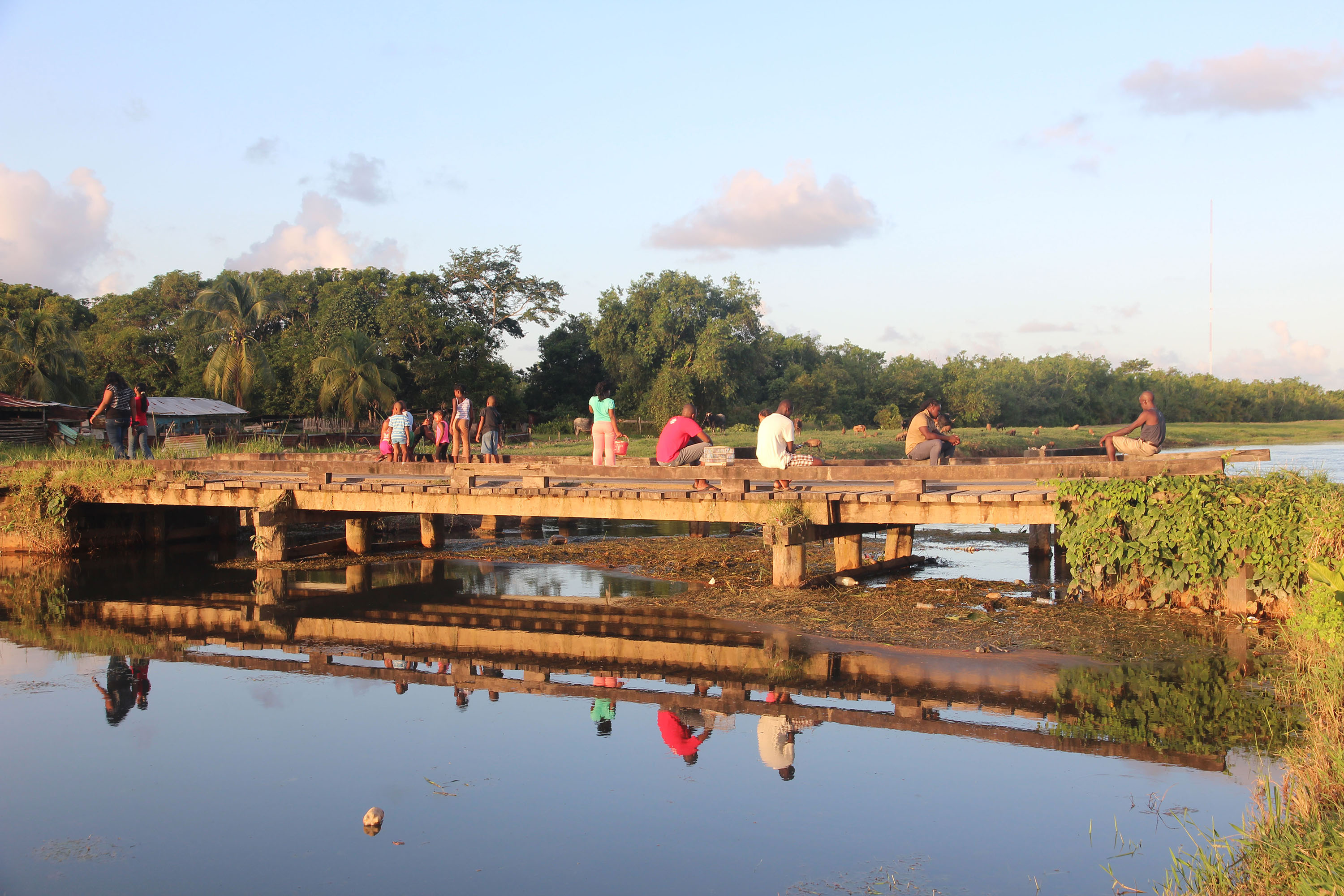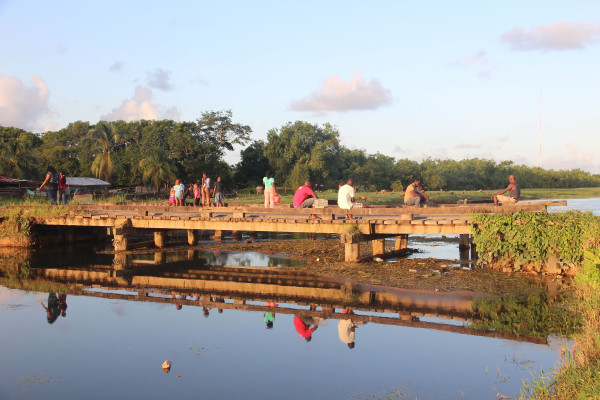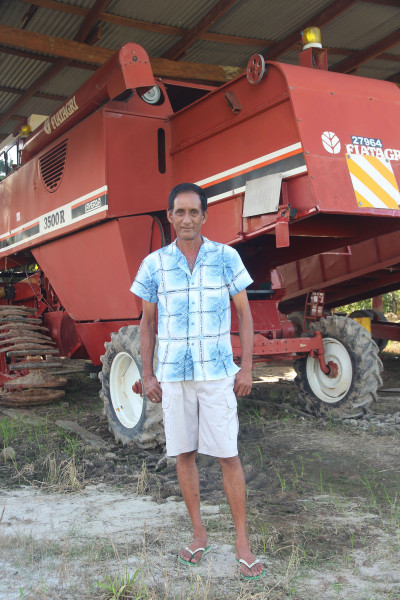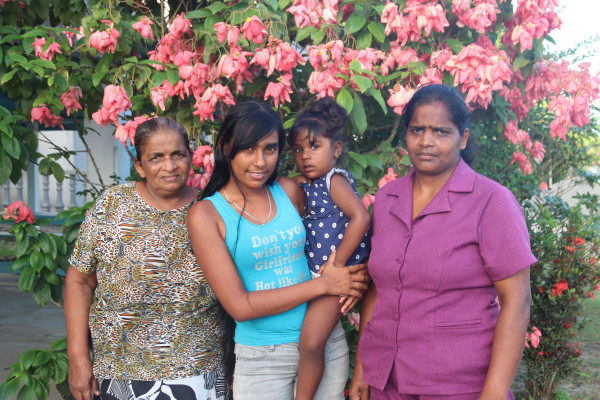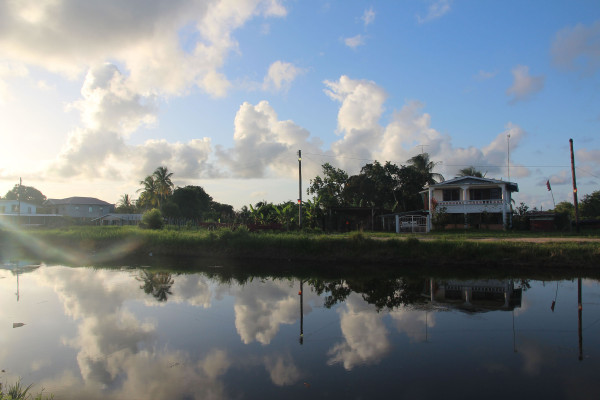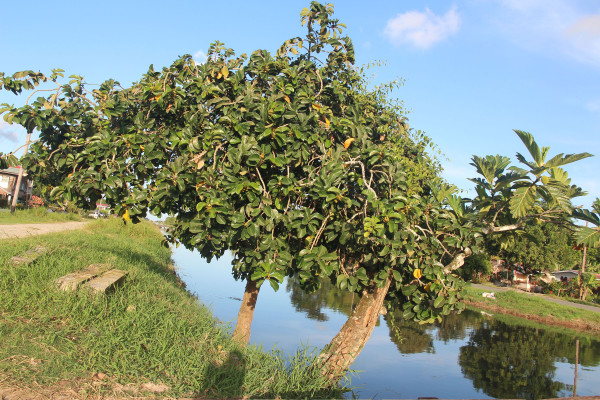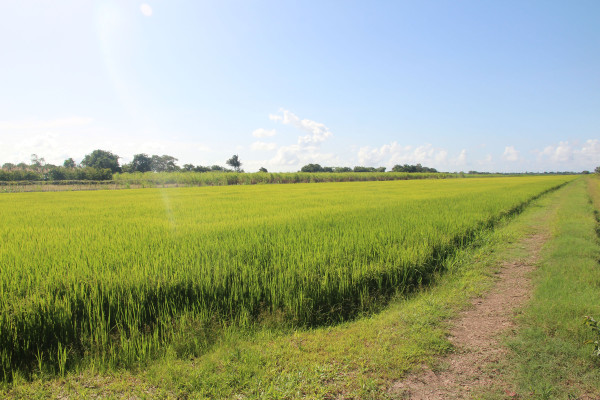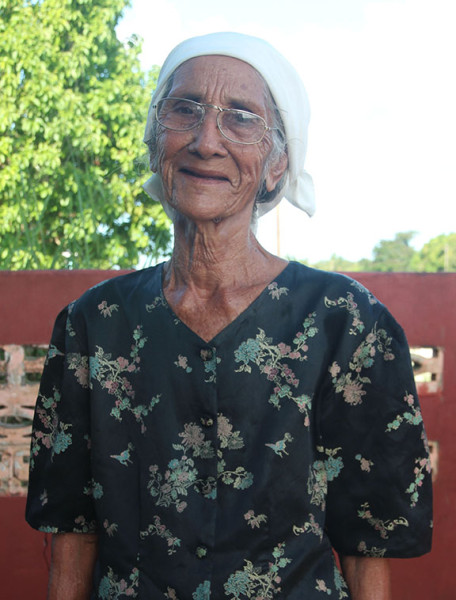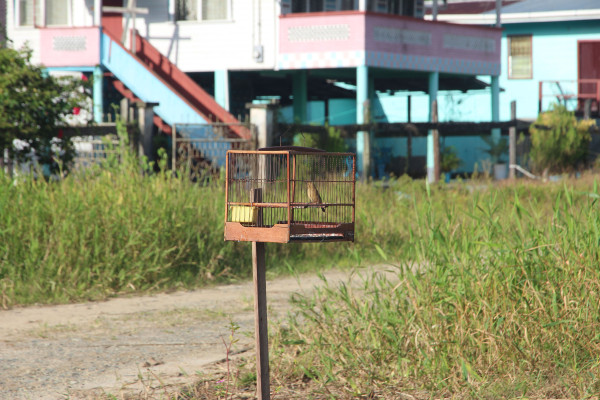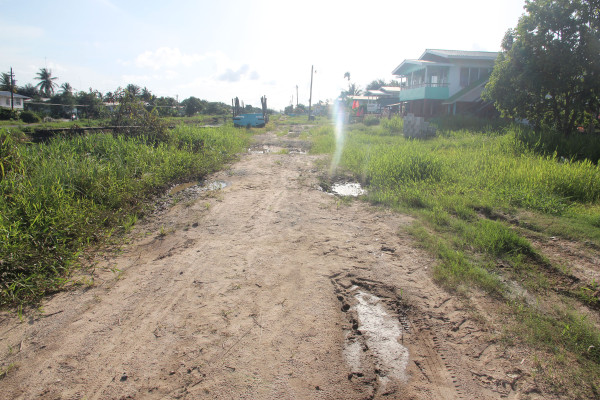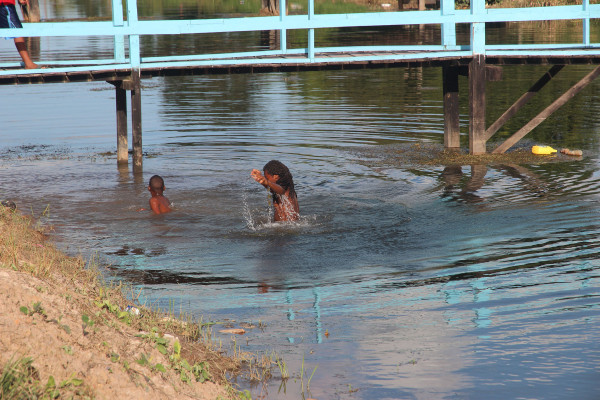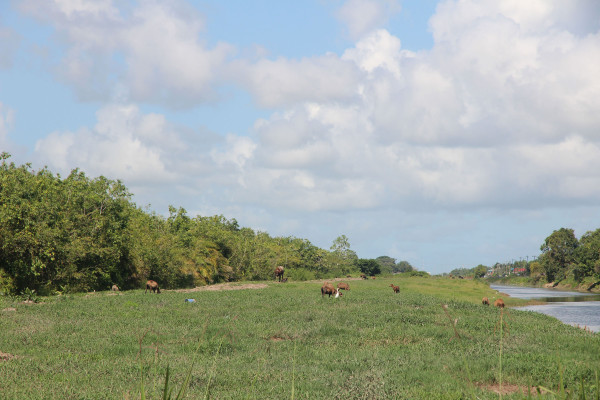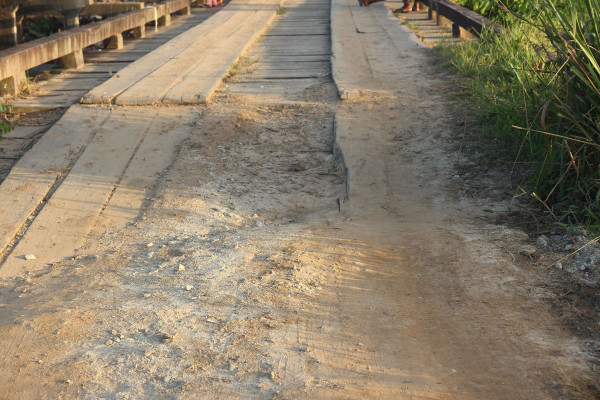Story and photos by Joanna Dhanraj
Sprawled along a dam parallel to the Canal Number One Polder public road is a charming little village called Java. Java is home to over 50 residents, most of whom are reserved. The village is multicultural and most persons farm as a means of earning a living but do not rely on just one income since it’s not so profitable but have a second and in some cases a third job to maintain their families.
School is out and youngster can be seen taking a cool dip in the trench. Further up a few adults and children from the village opposite, relax on Java’s bridge, fishing from the fresh water running below.
The World Beyond Georgetown met one of the farmers, Ramkissoon Ramnarine, who was rocking in his hammock and chatting with one of his employees. Now 57 years old, Ramnarine was born at Java. According to him, Java is about 70 to 80 years old. A rice farmer, Ramnarine recently suffered a huge blow. He said the $3,500 he once received for a bag of paddy has dropped to as low as $2,200, which is not sustainable.
The flooding of the backdams is another problem that affects the farmers. Ramnarine said that some years ago water from Parfaite Harmonie used to run-off somewhere between Versailles and the Demerara Harbour Bridge into the Demerara River. However, since the scheme was opened over five years ago, the water has been running-off into the Canal Number One trenches, thereby causing the water coming from the backdam to back-up which causes the farms to flood.
Ramnarine said too that there is another problem, which, if it worsens will take a toll on all farmers in Java and nearby villages. According to him, there are two dams situated at the end of the farms called; Centre Line and ‘A’ Line. Ramnarine said both dams are breaking away and although the ranger from the Regional Democratic Council of Region Three takes in a report every month, to date nothing has been done about the situation. He fears that should the dams break away, many farmers will suffer tragic losses. Should that happen, he would be unable to take the combine to the backdam when it’s time for harvesting.
Another concern is the first bridge in Java that is publicly owned while all the others are privately owned by a few of the villagers. Persons wishing to cross the private bridges in their vehicles could do so but must first request permission from the owner of the bridge; so most of the drivers prefer to use the public bridge. Ramnarine said that bridge was badly damaged and although several calls were made, something was done only recently, and only because of a funeral they had for two brothers who died recently in a motorcycle accident, but not much was done. Ramnarine is calling on the local authorities to take some action.
However, apart from the challenges faced, Java will always be a place of tranquility for him; somewhere he always looks forward to coming back to after visits to his daughter in Canada or even a hard day’s work.
Bibi Faneeza Rasheed had a bit to say on her village too. Rasheed, a mother of five, moved to Java 19 years ago after she got married. She had just returned from the public road with two of her children and a bag of groceries that she had bought from a van that comes along the road Mondays, Wednesdays and Fridays. Rasheed is a vendor who sells confectionaries at the Stabroek Market. Her baby goes to work with her and she says she is accustomed to multi-tasking. Every morning after getting herself and the children ready she takes a bus to Georgetown. She says sometimes it’s difficult to get transportation and one would have to wait as long as half an hour.
Her wish is for villagers to have access to landline phones. Rasheed says she’s grateful to be living among neighbours who are kind and cooperative and in a village where everything is up to date and where she can live in comfort.
Eighty-four-year old Sunderbashi Persaud also known as ‘Auntie Baby’ is the oldest living villager. She was unable to do an interview, but posed for a photograph.
Another villager who did not want her name published, said she had applied for a landline phone over 14 years ago. She also said she wished they could have a better road, one made of pitch, instead of the crusher run they currently have. According to her, the road has been repaired three times within two years and is in a terrible state which makes getting home with her vehicle difficult. These are her only concerns. She said since she has been living in Java she enjoys the peacefulness that comes with her community.
In the heart of Java is a jovial resident who is also a teacher at La’Venture Secondary School. Teacher Laleta Persaud moved from L’Esperance with her husband and two children a little over two years ago. She has only one concern and that is the road.
Persaud said the trench in her village is often cleaned by workers so the water is always running. She also commends the Guyana Power and Light Company for its efficient service, since the village has a transformer that blows every now and again but the blackouts are resolved quickly so they almost always have electricity. What she enjoys about her neighbourhood is the fact that once there’s a holiday, persons are out sharing delicacies. During the recent Eid-Ul-Fitr celebrations, though not a Muslim, she said, she ate “belly full.” Another thing she enjoys is the fact that the village is brimming with many fruit trees. According to her they have fruits of every kind there.
Zabeda is an import from the island of Leguan. She was brought to Java by her husband after they got married in 1975, just over 40 years ago. When she first arrived, she said, the road was a mud dam and the place looked like a jungle. There were about 12 little houses here and there. She said Java has come a long way but she believes it still has a far way to go. The mother and grandmother dislikes the fact that when it rains the water runs off the road into their yards. At present, also her pineapples are under water and she would rather not go to the backdam because of the possibility of snakes.
She’d also like to see something being done about the electricity poles since they’ve had a couple that fell because they were rotted. There is one, close by her, that looks like it’ll fall anytime. She also wishes that measures can be put into place to fix the drains in the backdams since according to her they don’t pay rates and taxes for nothing.
Though she thinks poignantly of Leguan, there’s something about Java that’ll keep her glued to Java; the fact that everyone knows everyone else and the old charm and peacefulness that comes with it.
